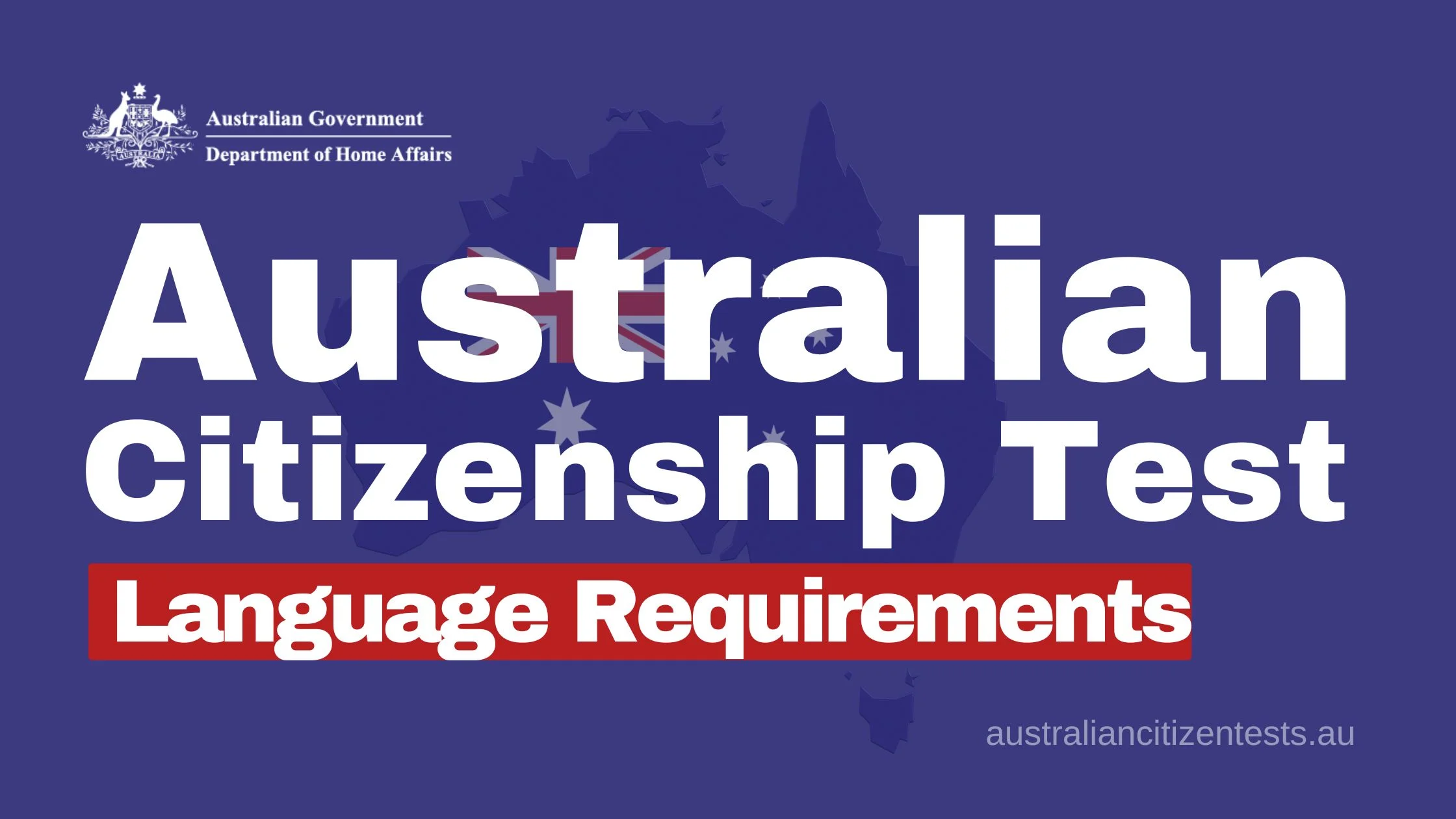
The Australian Citizenship Test doesn’t have a separate English exam, but you’ll need to show basic English skills by answering questions in English about topics like Australian values and laws. The entire test is in English, as required by the Department of Home Affairs. If you’re 60 or older, or have permanent hearing, speech, or vision difficulties, you might not need to take it. While tests like IELTS or PTE Academic are accepted, most people prove their English through the test itself, which checks your understanding of how Australia’s government and immigration laws work.
What Language is the Australian Citizenship Test In?
The Australian Citizenship Test is only in English, and no translated versions or interpreters are allowed. This rule comes from the Department of Home Affairs. The test checks if you can understand basic English by asking questions about Australian values, laws, and daily life. For example, you’ll need to read simple instructions and answer questions like “What is Australia’s national flower?”
Why is English required?
English is Australia’s de facto official language, used in education, healthcare, and legal systems. The Australian Citizenship Act and Migration Act require a foundational grasp of English to ensure newcomers can participate in society, access employment, and understand civic duties like voting. For example, the Department of Home Affairs emphasizes that language skills ease the settlement process, reduce language barriers, and foster social integration. While Australian Citizenship Test exemptions exist for applicants over 60 or those with permanent hearing, speech, or print disabilities, most must meet this standard to uphold government policy on cohesive communities
Is There an Official English Test for Australian Citizenship?
No, there’s no separate English test for Australian citizenship. Instead, your English skills are checked through the citizenship test’s multiple-choice questions. For example, you’ll answer questions about Australian laws, values, and history in English. The Department of Home Affairs confirms this rule under the Australian Citizenship Act, ensuring applicants can understand basic English for daily tasks like reading road signs or voting.
Historical Note: The White Australia Policy
In the past, Australia used a harsh dictation test (part of the White Australia Policy) to stop certain groups from immigrating. This test, under the Immigration Restriction Act 1901, asked people to write 50 words in any European language—even if they didn’t speak it! Unlike today’s fair rules, this old test aimed to exclude people based on race. Thankfully, it was abolished in 1958 and has no link to modern citizenship requirements.
Exemptions from the English Language Requirement
You might not need an English test for Australian citizenship if:
- You’re under 16 or over 60 years old.
- You’re from the UK, USA, Canada, New Zealand, or Ireland (your passport may exempt you).
- You studied in English for 5+ years (e.g., high school or university in Australia, Canada, or the US).
- Your job in Australia (like doctor or teacher) already proved your English skills through licenses.
- You have a long-term disability (e.g., hearing loss) that makes testing unfair.
The Department of Home Affairs explains these rules under the Australian Citizenship Act. For example, a nurse from Canada with a license might skip the test because their job required fluent English.
Studying for the Citizenship Test
To pass the test, start by using the official study guide from the Department of Home Affairs—it covers key topics like democracy, equality of opportunity, and respect for the rule of law. Take free practice tests online to get used to questions like “What does mutual respect mean in Australia?” Join local community study groups or free courses to learn with others. Focus on understanding Australia’s core values, such as freedom of speech and tolerance, which are often tested. For example, you might need to explain why voting is important in a democracy.
What Are the New English Requirements for Australia?
In 2025, there are no major changes to English rules for citizenship. You still prove your skills through the citizenship test. However, stricter language rules now apply to student visas and skilled migrants. For instance, some jobs or university courses might require higher IELTS scores (like nurses needing Band 7 instead of 6.5). These updates don’t affect citizenship but aim to ensure migrants can work or study safely in English-speaking environments.
FAQs
What Languages Are on the Australian Passport?
Australian passports are written in English and French. French is included because it’s a key language for international travel rules set by the ICAO (a global aviation group). Many countries, like Canada, also use both languages on passports to avoid confusion at borders.
Why Are Australian Passports Bilingual?
French is one of the ICAO’s official working languages, so including it helps Australian passports meet global standards. This doesn’t mean French is used in Australia—it’s just for international recognition. For example, border officials worldwide can easily read passport details in French or English.
Is There an Official Language of Australia?
Australia doesn’t have a legal official language, but English is the main language everyone uses daily. The government also protects Indigenous languages (like Yolŋu Matha or Pitjantjatjara) as part of the country’s cultural heritage. For instance, schools in some regions teach local Indigenous languages alongside English.
Conclusion
Australia’s citizenship process is designed to be fair and practical. You don’t need to pass a separate English test, but your language skills are checked during the citizenship test itself by answering questions about democracy, equality, and Australian laws. Some people don’t need to take the test, like those over 60, people with disabilities, or applicants from countries like the UK or Canada. These rules, set by the Department of Home Affairs, aim to balance fairness with Australia’s needs.
